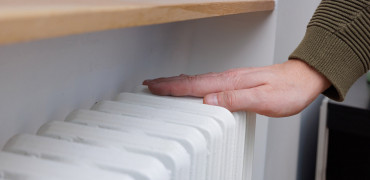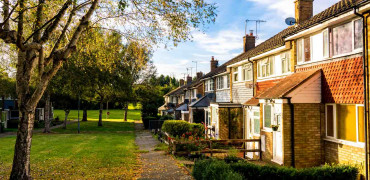On the whole, the UK building stock is old and poorly insulated.
Britain has the oldest housing in Europe, with over 60% of its homes were built before the first thermal regulations came into effect in 1970.
Older properties are more commonly heated with oil and solid fuel.
In 1970 only 30% of homes in the UK had central heating. Since then, the percentage of homes with central heating systems has grown dramatically, reaching 95% by the year 2005. Since then, the numbers have stayed largely stable.
To achieve our climate change goals, we must decarbonise our heating systems.
Gas has been dominant
Studies show that the majority of people in the UK use gas central heating to stay warm during the winter.
84% of domestic properties in the UK are connected to the gas grid, but four million of them are off-grid and rely on alternative fuels for cooking and heating.
193,000 homes use LPG as their preferred fuel, and its use for space and water heating is on the rise. It’s good… but it’s not renewable. For homes powered by solar and wind energy, LPG provides a versatile and complimentary source of energy. All common domestic gas appliances, including cookers and boilers for central heating, can be powered by LPG.
Off the grid
However, not everyone has access to gas. In the UK, 11 million people reside in rural areas, and 15% of them live off the grid.
Here, energy poverty is a very real concern. More than 10% of rural homes struggle to pay their energy costs. 15.9% of off-grid houses in England today are classed as fuel poor.
Did you know that 17% of the population of the UK lives in rural areas? The natural gas grid is frequently not accessible to these rural towns.
In fact, 15% of all UK residences are off-grid. Heating oil is frequently used as an alternative for heating needs. There are 1.3 million (31%) off-grid homes in Britain that are heated with coal and oil.
We must clean up our act
The average UK household emits more carbon dioxide (CO2) from heating than from any other activity. Going forward, we will need to drastically cut the amount of fossil-fuel generated heating, i.e. gas or oil-fired boilers, in our houses in order to meet net zero targets.
The heating sector in the UK accounts for almost one third of the UK’s annual carbon footprint. In 2019, 17% of heating emissions from buildings came from homes; this is comparable to the contribution of all petrol and diesel cars.
In its Clean Growth - Transforming Heating (2018) report, the Department for Business, Energy and Industrial Strategy (BEIS) identified that “heating is arguably the most difficult of the major energy consuming sectors of the economy to decarbonise”.
If the UK wants to achieve its climate change goals, it must decarbonise its heating systems.
To accomplish this in a fair and efficient manner, government must balance the problems of carbon reduction, air quality, and energy affordability; all of which have an effect on communities throughout the UK.
A step in the right direction
In June 2019, the UK became the first major global economy to enshrine into legislation its commitment to achieve ‘net zero’ emissions of greenhouse gases by 2050, compared to 1990 levels. As a step towards reaching this target, on 21 April 2021, the Government committed to reducing UK emissions by 78% by 2035.
Installing a renewable heating system, such as a heat pump, solar water heater, or biomass boiler, is one approach to achieve this. However, because every home is unique, the challenge is to determine which technology will work best for your home and lifestyle, or the homes and lifestyles of your tenants.
In summary
More power from the sun hits earth in a single hour than humanity uses in an entire year. The sun provides 430 quintillion joules of energy per hour; in comparison, mankind only consumes 500 million terajoules per year. It has been posited by solar experts that if we covered just 1% of the sahara desert with solar panels, that we could power the planet.
Heat pumps don’t directly use combustion to generate heat (heat pumps do not burn anything), there are no carbon emissions other than those created at the point of the electricity’s production and only a small amount of electricity is needed to run the compressor. This makes a heat pump an extremely eco-friendly space heating / cooling technology.
The good news it that we have the technology. But as the great David Attenborough ponce put it: “real success can only come if there is a change in our societies and in our economics and in our politics."
Joe Bradbury is digital editor of Housing Association magazine



